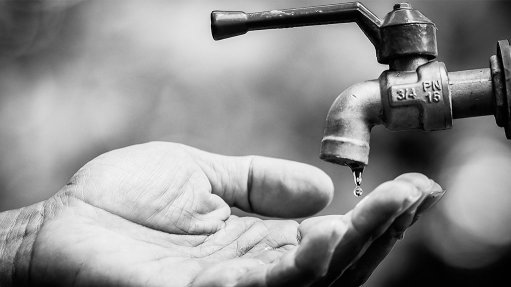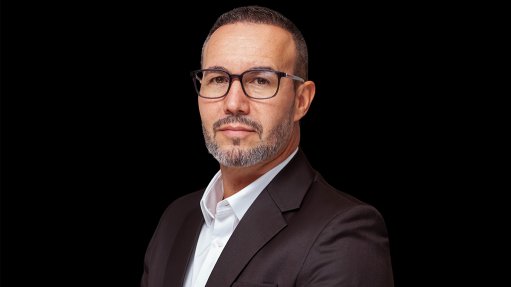Zambia’s Zuma moment
Something in the stars must have misaligned in 2016 to set the political world off kilter and bring in its wake the wanton destruction that is populism. In the UK it brought Brexit, in the US it paved the way for Donald Trump, and Jair Bolsonaro in Brazil. In Zambia, the 2016 elections saw Edgar Lungu elected to a full Presidential term. To the horror of Zambian business and the international mining community, Lungu and his Patriotic Front (PF) party are gearing for re-election in 2021.
It seems that Lungu’s PF will stop at nothing to stay in power, including reversing 30 years of macroeconomic reform – reform that put Zambia on a path of sustained upward growth peaking at 10% in 2012 and achieving prized middle-income status. Lungu fired Bank of Zambia governor Denny Kalyalya in August and replaced him with Christopher Mphanza Mvunga in a bid to control the national purse. The PF faces 2021 with empty coffers and Kalyalya was opposed to increasing spending to boost Lungu’s chances of remaining in power. Kalyalya repeatedly called on government to cut the fiscal deficit and face up to its ballooning debt and falling foreign exchange reserves. For reasons of diplomacy, South Africa’s President Cyril Ramaphosa was quite right to reprimand his Finance Minister, Tito Mboweni, over comments he made on social media about Kalyalya’s dismissal – but Mboweni was right! Kalyalya was respected as an independent, competent governor. His successor, Mvunga, is widely regarded as unqualified.
Under PF stewardship, Zambia’s gross domestic product growth (GDP) has halved. With the added shock of the Covid-19 pandemic, the International Monetary Fund (IMF) anticipates a 5% contraction in GDP growth in 2020. Taking direct control of the country’s economy makes it unlikely that government will be able to secure an essential IMF deal – until after elections. The IMF condemned the political interference and commented: “It is imperative that the central bank’s operational independence and credibility is maintained, particularly at this critical time when economic stability is threatened by the Covid-19 pandemic.”
But the PF has not stopped there: it has accelerated its bid to control mining – the traditional engine of the economy. Despite the fact that existing populist measures have seen royalty tax revenues from mining fall by 12 % in 2019, the pugilist Mines Minister, Richard Musukwa, announced in late August that State-owned company ZCCM Investments Holdings would buy a controlling stake in mining giant Glencore’s local copper unit, Mopani Copper Mines. Mateyo Kaluba, head of the State-owned Industrial Development Corporation, confirmed the State will run mines as an operator rather than a minority investor in future investments. This follows news from the Mines Ministry in July that it was reviewing 800 existing mining licences, and that several of these had already been revoked.
Reconstituting Zambia Consolidated Copper Mines (ZCCM) as an operator harks back to the 1970s, to the days when political interference saw it grind its way through bankruptcy and nationalism stifle virtually all private investment in Zambia’s mining. It was Zambia’s early 1990s privatisation programme – hailed as a model for the region – that opened the doors to substantial new foreign investment in mining and set the country on the path of its unprecedented economic expansion.
Musukwa and Kaluba’s plans beg the question of how government intends to pay for this strategy. The PF government is deeply in debt. It borrowed heavily to spend on infrastructure and public-sector wages. The public debt ballooned from 8.3% of GDP in 2011 to 43.1% in 2015 and credit ratings agency Moody’s forecasts it may exceed 110% in 2020. The country has already defaulted on some loans. On September 7, its newly appointed financial adviser, Lazards, started registering its eurobond creditors in a first step to facing its hefty debt burden. According to Reuters, the country owes $3-billion in eurobonds, $2-billion to commercial banks, $2-billion to the IMF and the World Bank and $3-billion to China. There is little or no prospect that the PF government can meet debt obligations without third-party help – either from the international donor community or from China. All indications are that China is not willing, perhaps hedging its bets until after elections.
The PF is not above misusing its office to constrain civil and political rights to hold onto power in another reversal – this time of Zambia’s traditionally benign politics. The country has famously survived the death in office of two Presidents: the Constitution kicked in, the Vice President assumed office and elections were held within the requisite 90 days. Lungu has changed the temperature. In April 2017, police arrested opposition leader and perennial Presidential candidate Hakainde Hichilema on treason charges after Hichilema’s motorcade refused to give way to Lungu’s. The President took Hichilema’s slight so seriously that he imposed a state of emergency – also last seen in the 1970s and then in response to the overspill from Zimbabwe’s liberation war. HH, as the successful farmer and businessperson is known, was released after 100 days in jail without charge.
Lungu will be pitted against Hichilema for a third time on August 12, 2021. If the stars realign, many hope it will be third time lucky for Hichilema.
Article Enquiry
Email Article
Save Article
Feedback
To advertise email advertising@creamermedia.co.za or click here
Announcements
What's On
Subscribe to improve your user experience...
Option 1 (equivalent of R125 a month):
Receive a weekly copy of Creamer Media's Engineering News & Mining Weekly magazine
(print copy for those in South Africa and e-magazine for those outside of South Africa)
Receive daily email newsletters
Access to full search results
Access archive of magazine back copies
Access to Projects in Progress
Access to ONE Research Report of your choice in PDF format
Option 2 (equivalent of R375 a month):
All benefits from Option 1
PLUS
Access to Creamer Media's Research Channel Africa for ALL Research Reports, in PDF format, on various industrial and mining sectors
including Electricity; Water; Energy Transition; Hydrogen; Roads, Rail and Ports; Coal; Gold; Platinum; Battery Metals; etc.
Already a subscriber?
Forgotten your password?
Receive weekly copy of Creamer Media's Engineering News & Mining Weekly magazine (print copy for those in South Africa and e-magazine for those outside of South Africa)
➕
Recieve daily email newsletters
➕
Access to full search results
➕
Access archive of magazine back copies
➕
Access to Projects in Progress
➕
Access to ONE Research Report of your choice in PDF format
RESEARCH CHANNEL AFRICA
R4500 (equivalent of R375 a month)
SUBSCRIBEAll benefits from Option 1
➕
Access to Creamer Media's Research Channel Africa for ALL Research Reports on various industrial and mining sectors, in PDF format, including on:
Electricity
➕
Water
➕
Energy Transition
➕
Hydrogen
➕
Roads, Rail and Ports
➕
Coal
➕
Gold
➕
Platinum
➕
Battery Metals
➕
etc.
Receive all benefits from Option 1 or Option 2 delivered to numerous people at your company
➕
Multiple User names and Passwords for simultaneous log-ins
➕
Intranet integration access to all in your organisation


















